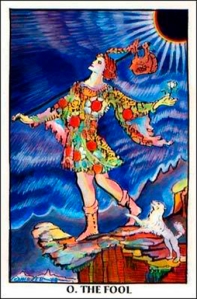A Foolish Consistency
A Foolish Consistency
Many will be familiar with the epithet:
“A foolish consistency is the hobgoblin of little minds.”
~ Ralph Waldo Emerson
Fewer will know that it comes from Emerson’s essay, “Self-Reliance“, first published in 1841. Or that the text continues:
“…adored by little statesmen and philosophers and divines. With consistency a great soul has simply nothing to do. He may as well concern himself with his shadow on the wall. Speak what you think now in hard words, and tomorrow speak what tomorrow thinks in hard words again, though it contradict everything you said today. — ‘Ah, so you shall be sure to be misunderstood.’ — Is it so bad, then, to be misunderstood? Pythagoras was misunderstood, and Socrates, and Jesus, and Luther, and Copernicus, and Galileo, and Newton, and every pure and wise spirit that ever took flesh. To be great is to be misunderstood.”.
In the essay, Emerson is advocating the advantages of thinking for oneself, rather than meekly accepting the ideas of others.
Many other notable figures have railed against the foolishness of consistency. In such august company, i think we can pass on further such railings.
I’d like instead to raise and rail against a related foolishness:
“A foolish craving for certainty is the hobgoblin of the fearful, who when obtaining become the tearful.”
By which I mean those who rush to secure certainty in their world, should they achieve their wish, often end up lamenting the outcome.
“Be careful what you wish for” is another apt proverb that comes to mind.
Recent (neuro) scientific research has illuminated the human brain’s innate hunger for certainty:
“A sense of uncertainty about the future generates a strong threat or ‘alert’ response in your limbic system. Your brain detects something is wrong, and your ability to focus on other issues diminishes. Your brain doesn’t like uncertainty – it’s like a type of pain, something to be avoided. Certainty on the other hand feels rewarding, and we tend to steer toward it, even when it might be better for us to remain uncertain.”
So, just as Emerson noted our “foolish” hunger for consistency, neuroscience notes our “foolish” hunger for certainty.
A Topical Example
We might be forgiven for being surprised that a “progressive software startup” which, presumably, understand the perils of trying to tie down every little detail of requirements before embarking on the development of a product, should fail to grasp the perils of attempting to tie down every little detail of a job specification before embarking on recruiting for that position.
It’s like, the more important the position, the more certainty the hirers seek to assuage their hungry brains’ demand for certainty. Blind to the perilous implications.
Just as with Big Analysis Up Front for software development, BAUF for recruiting can lead to some unfortunate consequences:
- Exclusion of the best candidates
- Delays in finding even fairly-suitable candidates
- Assumption that the eventual new hire is actually fit for the job
- inclination to pigeon-hole the new hire, thereby demotivating him or her over time.
- A job (position, role) not well-suited to the actual – as opposed to imagined – needs of the hiring organisation
- De-emphasis on adaptability and flexibility as desirable new hire characteristics
- Increased likelihood of hiring a narrow specialist (speciation, decrease in memetic diversity)
- Unreasonable (stress-inducing) expectations of the new hire (cf Deming’s 95/5)
- Lost opportunities for building mutual trust
- Demotivation of the recruiters
Just as the world of software development has adapted to the brain’s cravings by e.g. adopting and evolving agile development principles, a more effective approach to recruitment might be to adapt, again. I’m thinking simple story cards, as placeholders for dialogue; I’m thinking making things visible; I’m thinking a focus on value; I’m thinking tests. Sounds familiar?
I’ve written on a similar theme previously, with the post Make Bad Hires!
This post has been brought to you by Lemons, and the wish to make lemonade.
– Bob
Further Reading
A Hunger for Certainty ~ Dr. David Rock
Thinking, Fast and Slow ~ Daniel Kahneman


Both seem to represent a desire for freedom from thought and responsibility.,,and freedom can’t be bad, right 😉